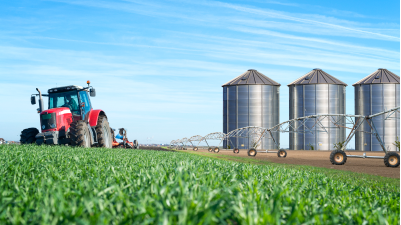Food systems are sets of activities and processes involved in the production, distribution, consumption, and management of food. They play a key role in the animal nutrition and production chain, from feed production to animal feeding and the subsequent marketing of animal products such as meat, milk, and eggs.
Bringing this concept to the food production chain, especially linked to livestock, the main objective of food systems will be to ensure that animals receive a balanced and complete diet, providing all the nutrients necessary for their welfare and health. For this, several types of food are used, such as grains, forage, bran, oils and fats, among others, which are combined according to the specific nutritional requirements of each animal species.
In addition, feed systems also play an important role in animal production, helping to maximize production efficiency and the quality and quantity of the products obtained. For example, the use of feeds formulated specifically for each animal species can increase growth rate, feed efficiency, and meat, milk, and egg production.
Below is a little more about the main activities and processes that are part of the food systems of animal nutrition and production:
1) Production of animal feed: includes the production of grains, fodder, bran, oils and fats, among others, used in animal feed.
2) Feed formulation: the process of combining different types of feed to create a balanced and complete diet that meets the specific nutritional needs of each animal species.
3) Food distribution and storage: includes the logistics of transport and storage of animal feed, ensuring its quality and safety.
4) Quality management: the process of checking feed quality, including inspecting grain, validating ingredients, and testing for contaminants.
5) Feeding the animals: includes the administration of food to the animals, following the specific nutritional recommendations of each species and the necessary management for the best nutritional strategy.
6) Quality control of products of animal origin: verification of the quality of products obtained from animal production, including meat, milk and eggs, to ensure their safety and quality for human consumption.
7) Marketing of animal products: the process of selling and distributing products obtained from animal production.
As seen above, an important aspect of food systems is food quality management, including food safety issues, to ensure that food fed to animals does not cause harm to the health of animals or consumers. This includes measures such as inspecting grain, validating the quality of ingredients, and conducting tests to detect contaminants.
In summary, feed systems are essential to ensure adequate animal nutrition and to maximize the efficiency and quality of livestock production. They involve a range of activities and processes that need to be well managed to ensure positive and sustainable results over time.
